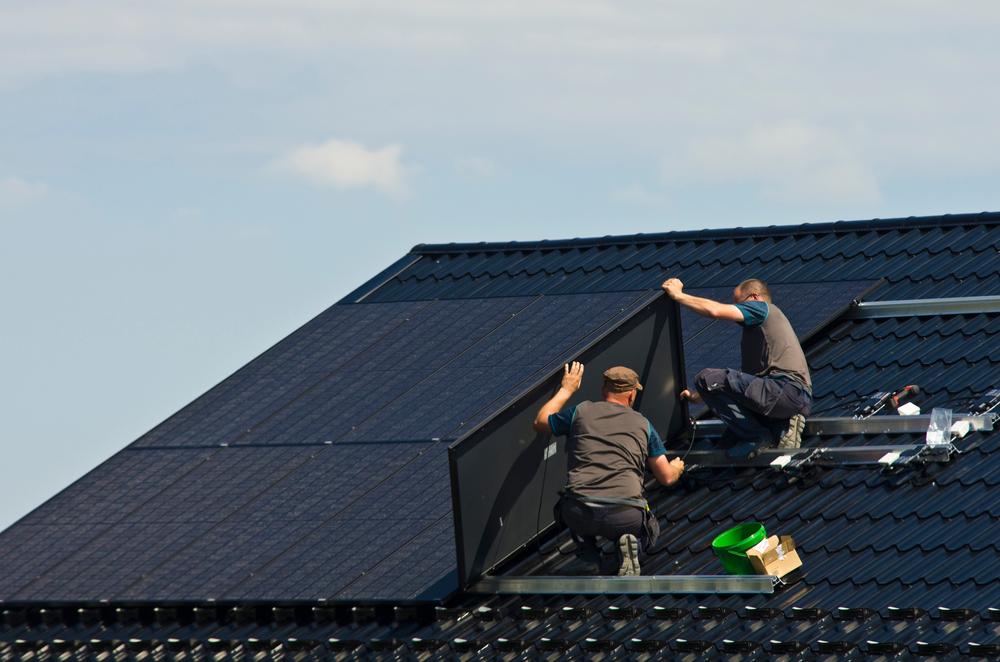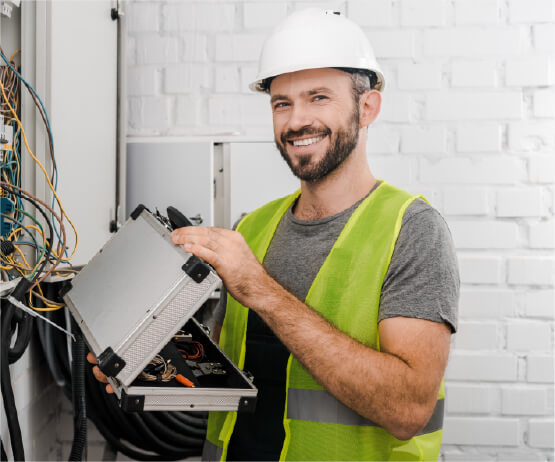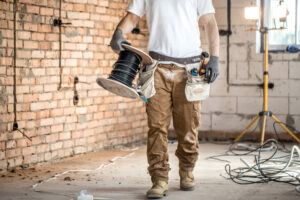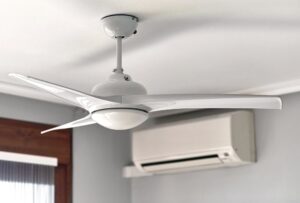An electrical system is the lifeblood of any home or business, powering everything from light bulbs to complex machinery.
However, when electrical issues arise, DIY electrical work can pose legal and safety risks. That’s where professional electricians come in.
But how do you recognise when you need an electrician? And how do you ensure that they are qualified and reliable? Here’s our guide to knowing when you need an electrician in Inner West Sydney.
Key Takeaways
- Engaging a licensed electrician is imperative for addressing electrical faults and issues at home or business, such as flickering lights, power outages, and tripped safety switches.
- Electricians specialise in different fields; residential electricians manage home systems, commercial electricians tackle larger business projects, and emergency electricians provide urgent, around-the-clock services.
- Before hiring an electrician, verify their qualifications, licences, and insurance coverage, understand the cost structure, and prepare the work area to facilitate efficient service.
Identifying the Need for an Electrician
Not all electrical issues are easy to spot. Sometimes, it’s a subtle flicker of a light bulb; other times, it’s a sudden power outage. Recognising the signs is the first step in addressing any electrical issue. Engaging a qualified electrician becomes necessary when any signs of electrical faults become evident, like a burning smell when using a socket or any charring on the appliance.
Here are some common signs that warrant attention from a professional.

Flickering Lights and Power Outages
Flickering lights and power outages can be more than just an annoyance; they could be signalling a deeper issue with your electrical system. These could be indicative of significant electrical issues such as a faulty electrical connection, loose wiring, or an overloaded circuit within the electrical supply network.
Engaging local electrical contractors is recommended when these symptoms persist, to prevent possible electrical hazards or emergencies.
Tripped Safety Switches
Safety switches are designed to protect you and your family from electrical shocks, but frequent tripping can suggest underlying electrical issues. This could be due to a malfunctioning electrical appliance connected to a circuit or larger issues such as damaged wiring, electrical faults, or defective switches.
These concerns should be promptly addressed by a licensed electrician to ensure electrical safety and avoid potential hazards.
Faulty Appliances Causing Electrical Issues
Appliances are an integral part of our daily lives, but when they start malfunctioning, they can lead to various electrical problems. Indicators like frequent electrical surges, flickering lights, overheating of plugs or outlets suggest potential electrical problems caused by faulty appliances.
Engaging a professional electrician is recommended to deal with these issues and prevent further damage or safety risks.

Types of Electricians You Might Need
Just like any profession, electricians also have their areas of expertise. Depending on the nature of the electrical work required, you might need a residential electrician, a commercial electrician, or an emergency electrician. Each type of electrician specialises in specific electrical tasks within their field, ensuring that they are well-equipped to tackle various electrical issues.
Here are detailed descriptions of these categories.
Residential Electricians for Home Electrical Systems
Residential electricians specialise in the electrical systems of homes. From setting up power points and installing safety switches to aiding in the installation of electrical devices like electric heaters and showers, they take care of a wide variety of services. They are equipped to address a variety of common electrical problems in homes, including flickering or dimming lights, faulty switches, broken light bulbs, power surges, tripped circuit breakers, and exposed wiring.
Commercial Electricians for Business and Public Buildings
Commercial electricians, on the other hand, focus on larger-scale projects for buildings and businesses, such as restaurants, hotels, and corporate offices. They handle various electrical services within a business, such as design, installation, repair, and maintenance of electrics in industrial buildings, retail outlets, office blocks, and hotel and holiday complexes. They need to undergo specific training and obtain certification to carry out their duties.
Emergency Electricians for Urgent Electrical Services
Emergencies can happen at any time, and that’s where emergency electricians come in. These professionals are available around the clock, including nights, weekends, and holidays, to promptly address electrical emergencies that could jeopardise safety or cause significant disruptions to your daily activities.
While their call-out fee may be higher than standard electricians, their services are immediate and prioritised, ensuring that your electrical issues are swiftly and efficiently addressed.

How to Find Local Electricians Near You
Now that you know the type of electrician you need, the next step is to find one. But how do you find a reliable electrician in your area? Fortunately, there are several methods to do so, including utilising online directories for local electricians in various locations in Australia, or by asking friends and family for recommendations.
Here are the details of these methods.
Utilising Online Directories and Platforms
With the convenience of the internet, finding anything, including a local electrician, is now a simple task. Online directories like:
- YellowPages
- Localsearch
- Oneflare
- Google My Business
are excellent platforms to find and compare electricians’ ratings and reviews. This allows you to make a decision based on the feedback and experiences of previous customers.
Finding the right electrician can be as simple as searching for an “electrician in inner west Sydney”.
Seeking Recommendations for Trusted Electricians
While online platforms are great, sometimes nothing beats a good old-fashioned personal recommendation. Asking your friends and family for electrician recommendations can be very beneficial. They can share their experiences and vouch for the reliability and quality of the electrician’s work.
Don’t forget to ask about their experiences and whether they were content with the service offered.
Ensuring Your Electrician is Qualified and Licensed
Once you’ve found an electrician or a few to choose from, you need to ensure that your electrician is qualified and licensed. This includes checking their licences and certifications and verifying their insurance coverage. This is to ensure the safety and quality of their work.
Checking Licences and Certifications
Before hiring an electrician, it’s important to check their licences and certifications. This can be done by requesting a copy of their licence and verifying it through online licensing tools provided by the respective licensing authority.
This ensures that the electrician is legally authorised to carry out electrical works.
Verifying Insurance Coverage
Insurance is another crucial aspect to verify before hiring an electrician. This serves as a safeguard against potential financial losses or damages resulting from their negligence or mistakes. It’s recommended to request a copy of their insurance policy and thoroughly review the policy details to ensure it is current and valid.
Understanding Electrician Costs and Charges
Before you engage an electrician, it’s important to have an understanding of the potential costs. The cost of an electrical job can depend on several factors, including the hourly rates, the complexity of the job, and any additional fees for emergency services.
Here is a breakdown of these costs for better understanding.
Hourly Rates and Job Complexity
Electrician hourly rates typically range from $50 to $150, with variations based on location and the electrician’s experience. The service charge for an electrician is usually influenced by the complexity of the job. Less complex tasks generally incur lower costs, while more intricate jobs result in a higher charge due to the extended time required for completion.
Call-Out Fees and Emergency Service Premiums
Besides the hourly rate, electricians may also charge a call-out fee, which usually covers travel time to the location and typically includes up to 30 minutes of labour. In emergency situations, the call-out fee may increase to as much as $300, reflecting the prioritised and urgent nature of the service.
Preparing for the Electrician’s Arrival
Once you’ve booked an electrician, it’s time to prepare for their arrival. Proper preparation not only facilitates a smooth and efficient service but also helps ensure a safer work environment for the electrician. This includes clearing the work area and having relevant information ready to share with the electrician.
Here are the details of these preparations.
Clearing the Work Area
Clearing the work area before the electrician arrives is vital. This involves relocating furniture or any items that could obstruct access to crucial electrical panels or outlets.
Creating a spacious and accessible work area allows the electrician to work efficiently and safely.
Having Information Ready
Aside from physical preparations, having the right information ready is equally important. Providing detailed information about the electrical issue allows the electrician to gain a better understanding of the problem, determine the necessary tools and materials, and devise an effective resolution strategy.
This includes a clear description of the electrical issue, any specific work that is required, and the location of the problem or work area.

What to Expect During an Electrical Service
With all the preparations complete and the electrician on their way, you might be wondering what to expect during the service. An electrical service typically encompasses the installation, maintenance, and repair of electrical systems.
Here is what a typical electrical service entails, including some DIY electrical work related to electrical circuits and the use of electrical equipment.
Inspection and Diagnosis of Electrical Systems
Inspection and diagnosis are the initial steps in any electrical job. The electrician will conduct a thorough examination and testing of all electrical installations and fittings within your property. They may use various tools for inspection and diagnosis, such as:
- Power recorders
- Digital multimeters
- Circuit testers
- Non-contact voltage testers
Repair and Maintenance of Electrical Wiring
Following the inspection and diagnosis, the electrician will proceed with the necessary repairs or maintenance. This could involve wiring repairs, replacing old circuits, and repairing outlets, switches, and fixtures. The electrician will implement safety measures during this process to protect against potential accidents or injuries.
Summary
In conclusion, hiring a professional electrician is crucial for ensuring the safety and proper functioning of your electrical system. Recognize the signs that indicate the need for an electrician, understand the different types of electricians available, and know how to find reliable local electricians near you. Prepare for the electrician’s arrival and ensure they are qualified and licensed. Lastly, know what to expect during an electrical service. By following these tips, you’re on your way to resolving your electrical issues effectively and safely.
And if you’re searching for an inner west Sydney electrician, you don’t need to look any further, cos here at Mr Sparky we can help you. We offer both residential and commercial electrical services, and we can even help in electrical emergencies. Call us on 1300 770 771 or book here.
Frequently Asked Questions
How do I know I need an electrician?
If your circuit breakers are tripping, lights flicker when using appliances, outlets are warm to touch, you get electric shocks when plugging things in, or hear strange sounds, you should call an electrician to inspect and fix the issues promptly.
Why are electricians so expensive?
Electricians are expensive due to the time-consuming nature of electrical work and the costs associated with safety, training, tools, and materials. This brings value in terms of safety, reliability, and expertise.
Why do I need an electrician?
You need an electrician during home renovations to install or upgrade various electrical systems, as DIY electrical work is illegal and not worth the risk.
Can I negotiate with my electrician?
It’s usually not common to negotiate with an electrician for the price of common electrical jobs. However, for larger projects, it may be possible to negotiate a smaller total project fee. Keep in mind that electricians typically charge a flat rate for their time based on the number of hours involved.
What are the different types of electricians available?
There are different types of electricians available, including residential electricians for homes, commercial electricians for businesses and public buildings, and emergency electricians for urgent services. Choose the one that meets your specific needs.











